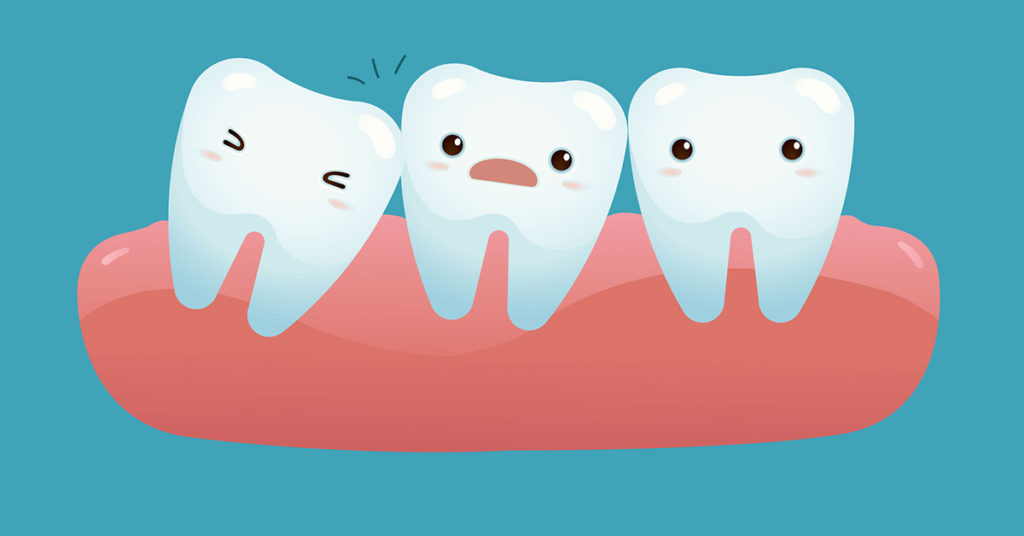Just when everything seems to be going OK, your dentist presents you with the unfortunate news that you need to have your wisdom teeth removed. Immediately, you’re filled with a sense of dread and foreboding, given the way in which this is the kind of dental procedure that seems synonymous with unpleasantness. But just as is the case with most things, the more you know about exactly what to expect ahead of time, the easier you’ll find it to cope with everything.
So in this entry and the next, we’ll hopefully cover each and every important point and question when it comes to the specifics of wisdom teeth removal.
How Necessary Is Wisdom Teeth Removal?
First of all, there’s the obvious question – why is it that so many people these days need to have their wisdom teeth removed? The short answer is relatively simple – the human jaw these days simply doesn’t grow to a size large enough to accommodate wisdom teeth. At least, in many instances. Where there’s insufficient space, they can end up growing at a crooked angle, damaging the other teeth in the mouth and causing all manner of problems with the jaw etc. As such, if your dentist determines that you have wisdom teeth coming in and not enough room to accommodate them, you will probably be recommended for removal.
Can Wisdom Teeth Removal Be Prevented?
Unfortunately, as it all comes down to evolution, there’s really nothing you can do to change your fate when it comes to wisdom teeth. Even with the most advanced water flosser on the market and immaculate oral hygiene with a dentist-recommended electric toothbrush, you either will or will not develop a problem with wisdom teeth. Don’t feel too bad if you do however – it’s the same for millions of people of all ages, all over the United Kingdom.
Will I Need Mine Removed?
This is a question only your dentist can answer, as it comes entirely down to the shape and size of your mouth, not to mention how many teeth you currently have, their respective positions and so on. Contrary to popular belief, quite a lot of people develop wisdom teeth and have absolutely no problems accommodating them. There are various tests you can do that involve poking your fingers all around your mouth for something of a self-evaluation, but to be perfectly honest, none are accurate or reliable. As such, it really isn’t a decision or prediction you can make on your own.
What Kinds of Questions Should I Ask My Dentist?
If your dentist has brought up the issue of wisdom teeth and you are concerned about what comes next, it’s a good idea to ask a few important questions to clarify the basics. These might include:
- Do I need to have all or just some wisdom teeth extracted?
- What are the options in terms of anaesthesia?
- What is likely to happen if I don’t go through with the surgery?
- Are there any alternative treatments available?
- How soon will I need the surgery?
- How long is the recovery period?
Basically, anything you have on your mind should be brought up and discussed as early as possible.
What Happens If I Don’t Have Them Removed?
Once again, this is a question only your dentist can answer as it all comes down to the specifics of your mouth and the way your wisdom teeth are forming. In some instances, wisdom teeth simply stay where they are and cause little to no pain, discomfort or damage. In other instances, they can cause serious damage to the surrounding area in the mouth, which can in turn lead to the requirement for even more intensive and expensive surgery.
When Should Wisdom Teeth Be Removed?
Generally speaking, dentists recommend having wisdom teeth removed as early as possible, before they are fully formed and developed. Nevertheless, the ideal time for the surgery to take place can vary from childhood right through to middle age, depending on the specifics of the individual in question. More often than not however, they should be removed long before they are able to begin causing pain and discomfort, rather than waiting for problems to begin manifesting.
How Long Is Wisdom Teeth Recovery Time?
This all depends on the severity of the surgery, your own health at the time and what type of anaesthesia you choose. Generally speaking however, normal life can resume after no more than about a week – recovery periods sometimes being as short as just a few days. Your dentist will inform you of any important specifics with regard to aftercare and how to look after yourself, meaning you won’t be in any doubt whatsoever as to what you should and shouldn’t be doing.
What Kinds of Side Effects and Symptoms Can I Expect After?
During the first 12 months after your wisdom teeth are removed, you may notice a very slight thinning of your face. This is due to the physical removal of some of the support beneath your cheeks and muscles. You may also develop a certain level of sensitivity in the teeth surrounding the area treated, along with occasional aching or general sensitivity. If you experience any jaw pain or clicking, this is probably simply due to the surgeon having propped your mouth wide open for a rather extensive period of time and should go away on its own.
Stay tuned for the second part of our guide to wisdom teeth, coming soon…
